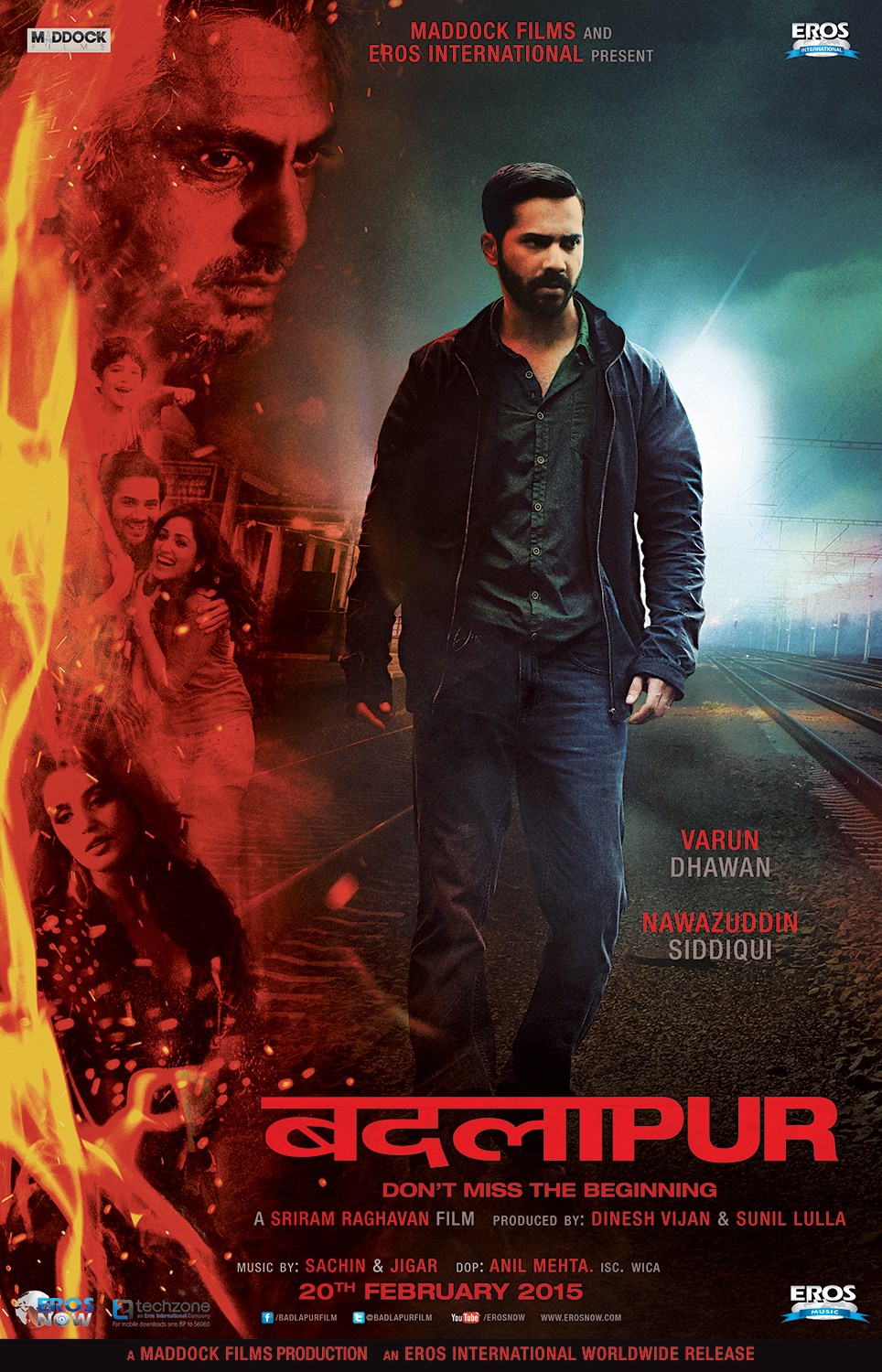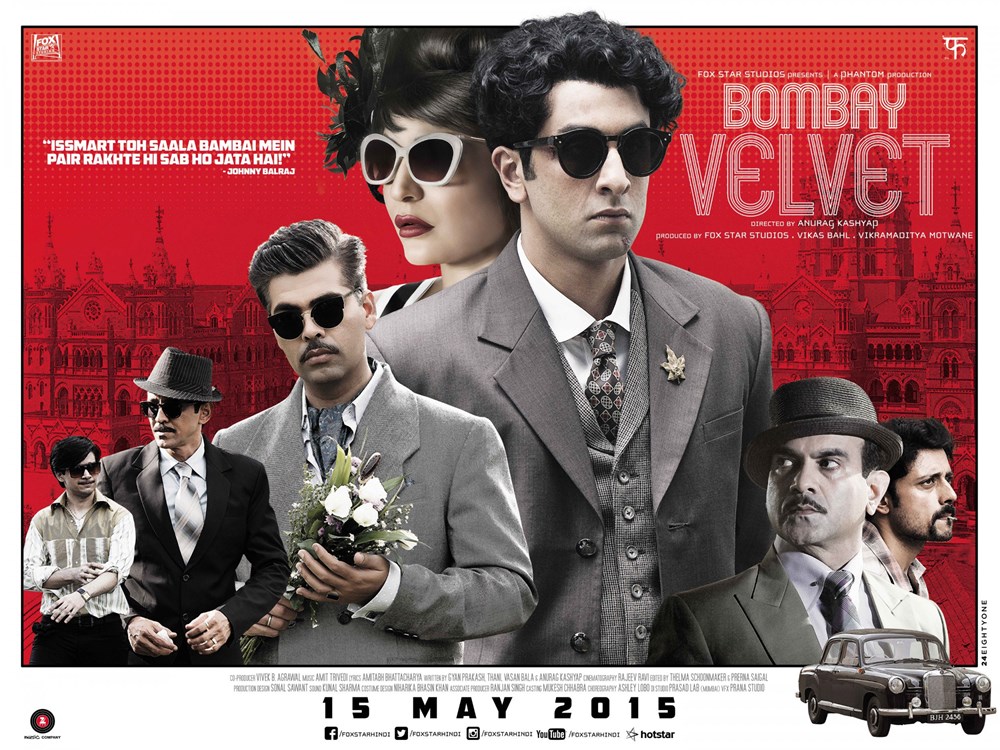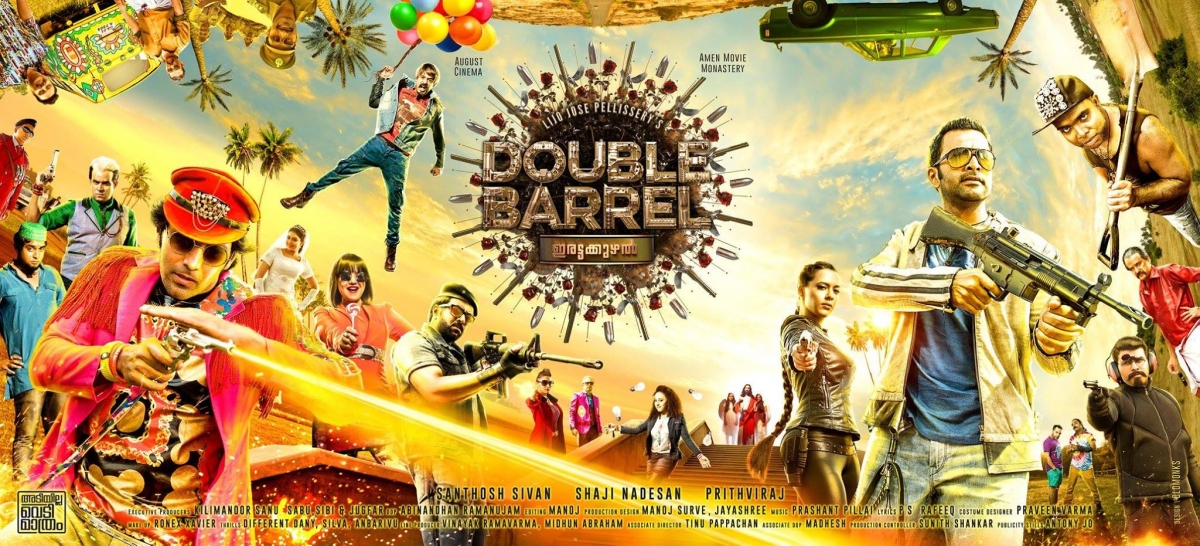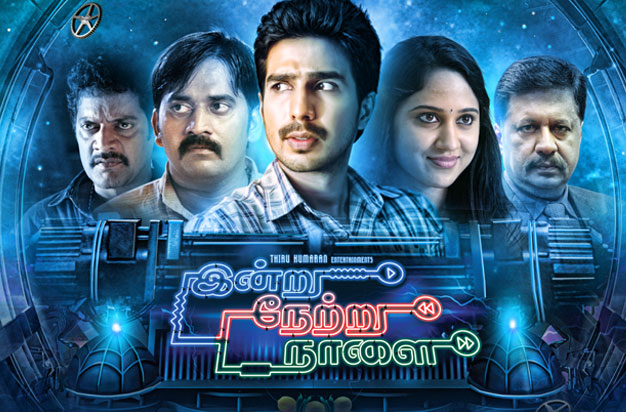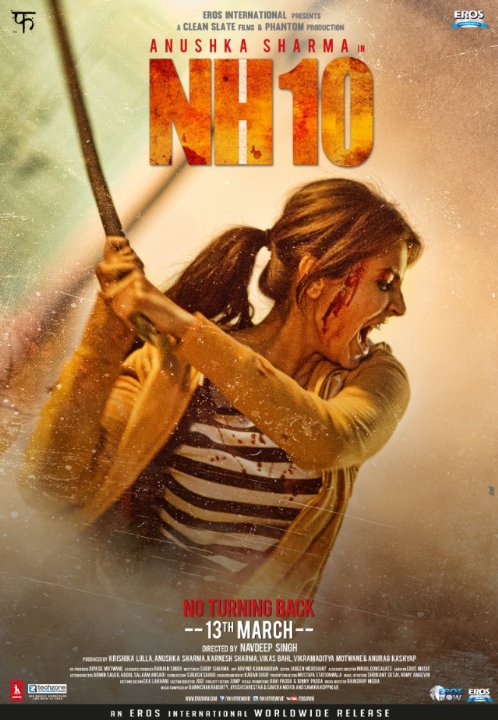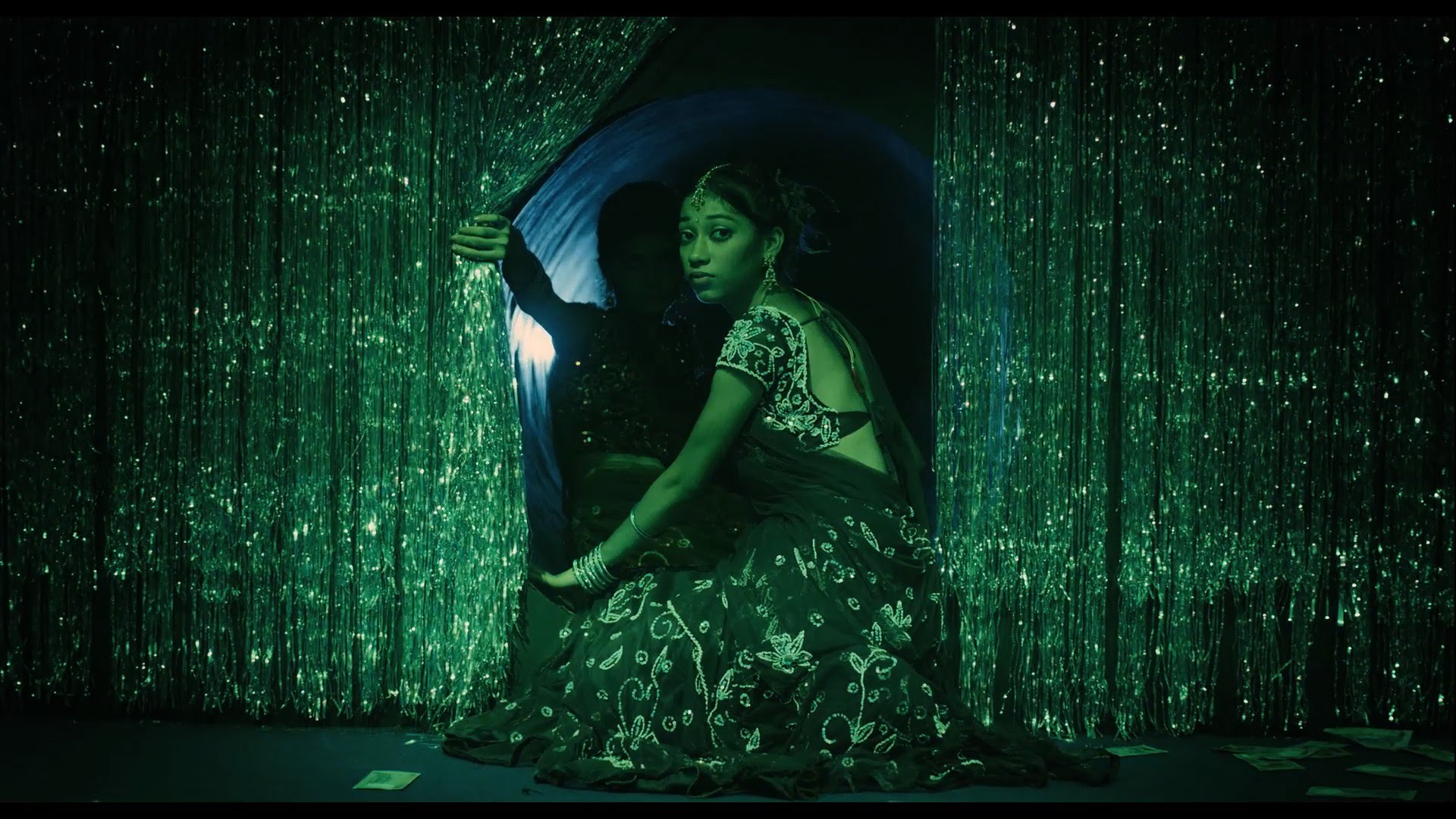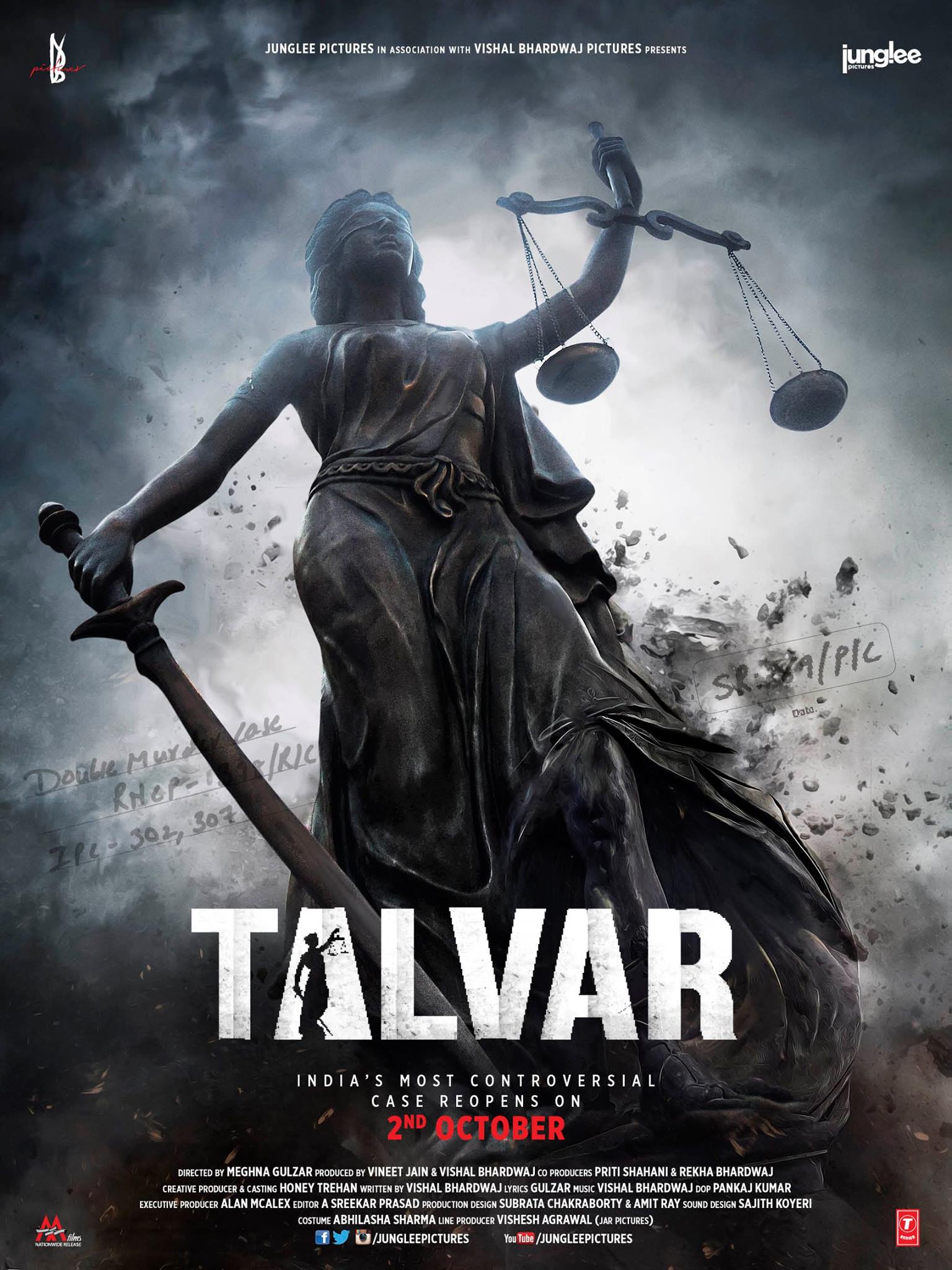As usual, I offer my standard admonition that my list should in no way be considered as a list of the best Indian films of the year. First of all, I didn't see nearly enough of the mainstream critical darlings to make that distinction. Second, to me, "best" indicates some kind of objective truth, which just doesn't exist. Instead, I offer up a list of my favorite Indian film experiences of the year and hope it encourages you to seek out a few things on your own!
Pierce Conran
contributed to this story.










My favorite.
Follwing Eega was never going to be easy for director SS Rajamouli. That film was my favorite overall from 2012 and introduced his particular brand of cinemania to the world after numerous festival placements around the world. However, with Baahubali, Rajamouli has shown the world what we fans already knew, he is the real deal. I reviewed the film upon its release this summer, so rather than attempt to wring new superlatives from my vocabulary, I'll share a brief bit of that review:
What it all boils down to is that SS Rajamouli is a director with a heart as big as a house, and ambitions bigger than you can imagine. His films redefine what the scope of Indian Cinema can mean, both in terms of this kind of epic story as well as who the audience for this largely regional cinema is. Baahubali - The Beginning is a film for the child in everyone, the one who wants to believe in heroes and derring-do, and for the adult in everyone who wants to believe that they can be the hero of their own story, that they just need the right motivation. I've waited all summer for a great film, and Baahubali - The Beginning is the first film that feels to me like it hits all of those notes. When Hollywood comes knocking on Rajamouli's door, don't say I didn't tell you first.
Sriram Raghavan made up for the lackluster Agent Vinod with this return to his grittier roots. Badlapur is a Korean style revenge film made in India, and Raghavan, along with his exceptional stars Varun Dawan and Nawazuddin SIddiqui, are the perfect choices to anchor this thriller about a man with nothing left to lose and the man who took it all without even realizing it. Here's a brief piece of my review:
Badlapur is among the finest Indian thrillers I've seen over the last year, and Raghavan's best film in many years. This is a film that can run with the best of international cinema; not too melodramatic, no big production numbers, just an extremely solid and well-paced thriller that plays with the audiences sympathies in a manner that I'm not accustomed to seeing in an Indian mainstream production. If the name of Nawazuddin Siddiqui is still one that isn't familiar to you, I highly recommend that you seek this film out to see what Indian film fans have been yelling about for the last five years or so. The man and his work takes Indian film to a new level, and even though he plays the supporting role in this, he fills every single frame he is in and it's impossible to look away. Badlapur is the real deal, don't let your fear of Bollywood keep you away, you need to see this film.
Okay, this one came as a bit of a surprise to me (considering how I was unimpressed when I watched the film back in May), but hear me out.
Anurag Kashyap is the elephant in the room whenever one talks about independent Indian cinema. He's either writing, directing, or producing twenty-four hours a day. Bombay Velvet was to be his calling card for the future. After the massive success of Gangs of Wasseypur on the international stage, Bombay Velvet was going to be the film that cemented his place among the greats. However, when it released most critics, including me, were not fans and the film died a lonely death at the box office.
It is now seven months later, and as I look back on the experience of the film, it is with kinder thoughts and more reverence for the material. I'm not completely enamored of it yet, however, taking the long view of Bombay Velvet has allowed me to appreciate the parts of the film that didn't meet my expectations, because in the end, my expectations for a film don't mean a thing. Bombay Velvet is a giant leap forward in terms of scope and execution for Kashyap. Yes, he stumbles. No, it doesn't always work. However, Kashyap's tale of a small time hood trying to make the big time is a beautiful disaster, which is often just as interesting as a masterpiece. Definitely worth checking out again.
Chaitanya Tamhane's Marathi language procedural satire Court is an absolutely brutal deconstruction of the broken Indian legal system. Much like Nagraj Manjule's Fandry last year, Court takes aim at one of India's great shames, and the result is a incredibly gripping, frustrating, and chilling film that will leave viewers furious by the end. Dustin Chang had words far more eloquent than my own when he reviewed the films for ND/NF earlier this year:
Tamhane's understated, layered script highlights the lack of understanding among different social strata in a complex society which is still deeply bound in tradition in the 21st century. As the film ends with the judge falling asleep on his chair on his vacation, the audience is left to grapple with the death of a sewer worker who's already forgotten by everyone. It is also chilling to think that there isn't going to be any kind of investigation on the condition of these lowly workers. Biting and devastating, Court is one of the real standouts of this year's New Directors/New Films.
Lijo Jose Pellissery's Malayalam masala genre mash-up Double Barrel is too long, unfocused, occasionally sloppy, and makes very little sense.
Double Barrel is also probably the craziest, most gonzo, most creative, most singular vision to come out of India this year. This film, which is equal parts Scott Pilgrim and Pulp Fiction, is weird as hell and races along to the beat of its own drummer. There is an internal logic that will make your head spin, too many characters to keep track of, a million and one subplots to complicate the story, and almost every plot twist involves an insane amount of coincidence. However, it never bored me, even when it was starting to overstay its welcome, there was always something going on that kept me on its hook.
I'm still not completely sure what happened in Double Barrel, but I know I'm going to return to this film more than once to see if I can finally figure it out.
Indru Netru Naalai is a last minute addition to my list. It actually released worldwide several months ago, but I wasn't able to see it until yesterday and it is among my favorite Tamil films of the year. This film, whose title translates to Past, Present, Future, is a time travel comedy/drama/thriller that does more with the time travel concept that most films can muster.
Or course, when it comes to time travel movies, there is always a lot of borrowing because every story of this nature is essentially the same. Someone finds or makes a times machine, they use it for their own ends, screw something up, and finally they have to find a way to fix it. In the case of Indru Netru Naalai, the story is largely the same, but it is told with such warmth and heart that it's impossible not to enjoy the film.
Indru Netru Naalai has no big stars and no big names behind the camera, however, it has a lot of spunk, and that makes it work.
I really loved Ludo, the first horror film from co-director's Q and Nikon. It's odd, disjointed, and weirdly paced, but it also attempts to chart some new ground for Indian horror films, and that's a brave thing. As I've gone through the year I've spoken with many people who don't find the same appeal that I do, but I think that there's something here that deserves discovery. Here is a brief passage from my review out of Fantasia:
When I heard that Q was working on a horror film I had two initial reactions, the first was was, "finally!", and the second was, "oh shit, how is he going to pull that off?" Well, I think the answer with Ludo is clear, Q and Nikon made a horror film their own way, with their own signature, and their own sensibilities clearly on view throughout. It will piss some people off, it will alienate some viewers, and it will bore some to tears. Those people who love it, however, will love it fiercely and without reservation. I obviously count myself in the latter camp.
NH10 is one of those films that I was able to see fairly early in its theatrical run, but not quite early enough to make a review worthwhile. This second film from Navdeep Singh is about as close to a survival horror/backwoods thriller as I've seen come out of India. The film follows an urban couple who stumble onto some frontier justice being doled out along India's national highway 10 (hence the title). When the perpetrators find out that they've been witnessed doing the deed, they determine that it is best to get rid of any witnesses. The ensuing cat and mouse game is a tense and unrelenting trip through a rural Indian nightmare.
Many have compared NH10's plot to that of Eden Lake, and I can't say that they are wrong, there are certainly more than enough similarities to warrant the comparisons, but NH10 is definitely an Indian film. The issues being raised and the seriousness with which the subject matter is treated are indicative of a rising tide of political consciousness in India and attempting to shine a light on the unenlightened. The result is a tense, violent thriller that finds it's basis too grounded in fact for comfort. I loved it.
Partho Sen Gupta's Sunrise is a masterful Indian neo-noir. When a policeman's daughter goes missing, the officer spends his days on the job, and his nights combing the seedy underbelly of Mumbai hoping to find her and bring her home. The results are predictable tragic and nihilistic, but Sunrise's style is what sets it apart from most modern Indian thrillers. The film is largely dialogue free, and takes place almost exclusively at night, lit only by the garish signs that beckon the lonely into houses of ill-repute. This film is superb, and its festival run around the world has garnered it accolades at every turn. Sunrise will be released in the US in 2016, don't miss it!
In the meantime, here's a piece of Pierce Conran's review from Busan last year:
Indian cinema provides another jolt of electricity to the thriller genre with Sunrise, a tight, punchy neo-noir about child trafficking in Mumbai. Taking place at night, frequently under heavy rain and driven forward by a pulsating minimalist electro score, the sophomore feature of Partho Sen-Gupta comes fully stocked in the style department yet never loses sight of its narrative core, that of a detective haunted by the abduction of his daughter.
Talvar was one of those films that I was fortunate to see very early and review for its premiere at TIFF a few months back. If it seems like a lot of my top ten are crime thrillers, guilty, I have my preferences. This film tells the story of the Noida double murder case that gripped India back in 2008 where a young Aarushi Talwar and a servant named Hemraj were killed and the case was bungled publicly by the police in the worst way.
Director Meghna Gulzar, along with writer Vishal Bhardwaj, attempts to take all of the pieces of the puzzle and make them fit in a way that works for the evidence, or maybe just for their story, it is up to you to decide. Anchoring the project is a rock-steady performance from the always dependable Irrfan Khan as an investigator brought it to help clean up the mess, only to realize that even if he finds the truth, their still may be no justice. Here are a few words from my review in September.
The world may never know what really, truly happened to Aarushi Talwar that day in 2008. A cursory Wikipedia search of "Noida Double Murder Case" is just the start of an infinite rabbit hole of evidence, conspiracy, theory, and doubt. However, thanks to Meghna Gulzar's expansive exploration of the subject matter, with a screenplay by Bollywood auteur and expert in Shakespearean drama Vishal Bhardwaj (Omkara, Maqbool, Haider), Talvar is probably about as close as we're likely to get.
Talvar makes for gripping, infuriating, and at times illuminating viewing, and it's a film that will translate just as well to those ignorant with the case as to those intimately involved.

More about Baahubali
- Eric Ortiz's Favorite Movies Of 2017
- Marshy's Favourite Asian Movies of 2017 Part 1
- Review: SS Rajamouli's BAAHUBALI 2: THE CONCLUSION Shows A Director on the Verge of International Stardom
- Check Out These New Posters For BAAHUBALI 2: THE CONCLUSION, India's Biggest Film Event
- Blood, Fire, & Betrayal Rule In BAAHUBALI 2: THE CONCLUSION Trailer
More about Badlapur
More about Bombay Velvet
More about Court
More about Double Barrel
More about Ludo
More about NH10
Around the Internet
Recent Posts
Friday One Sheet: LIVING THE LAND
Now Playing: BLADES OF THE GUARDIANS and Some Other Movies
Leading Voices in Global Cinema
- Peter Martin, Dallas, Texas
- Managing Editor
- Andrew Mack, Toronto, Canada
- Editor, News
- Ard Vijn, Rotterdam, The Netherlands
- Editor, Europe
- Benjamin Umstead, Los Angeles, California
- Editor, U.S.
- J Hurtado, Dallas, Texas
- Editor, U.S.
- James Marsh, Hong Kong, China
- Editor, Asia
- Michele "Izzy" Galgana, New England
- Editor, U.S.
- Ryland Aldrich, Los Angeles, California
- Editor, Festivals
- Shelagh Rowan-Legg
- Editor, Canada



